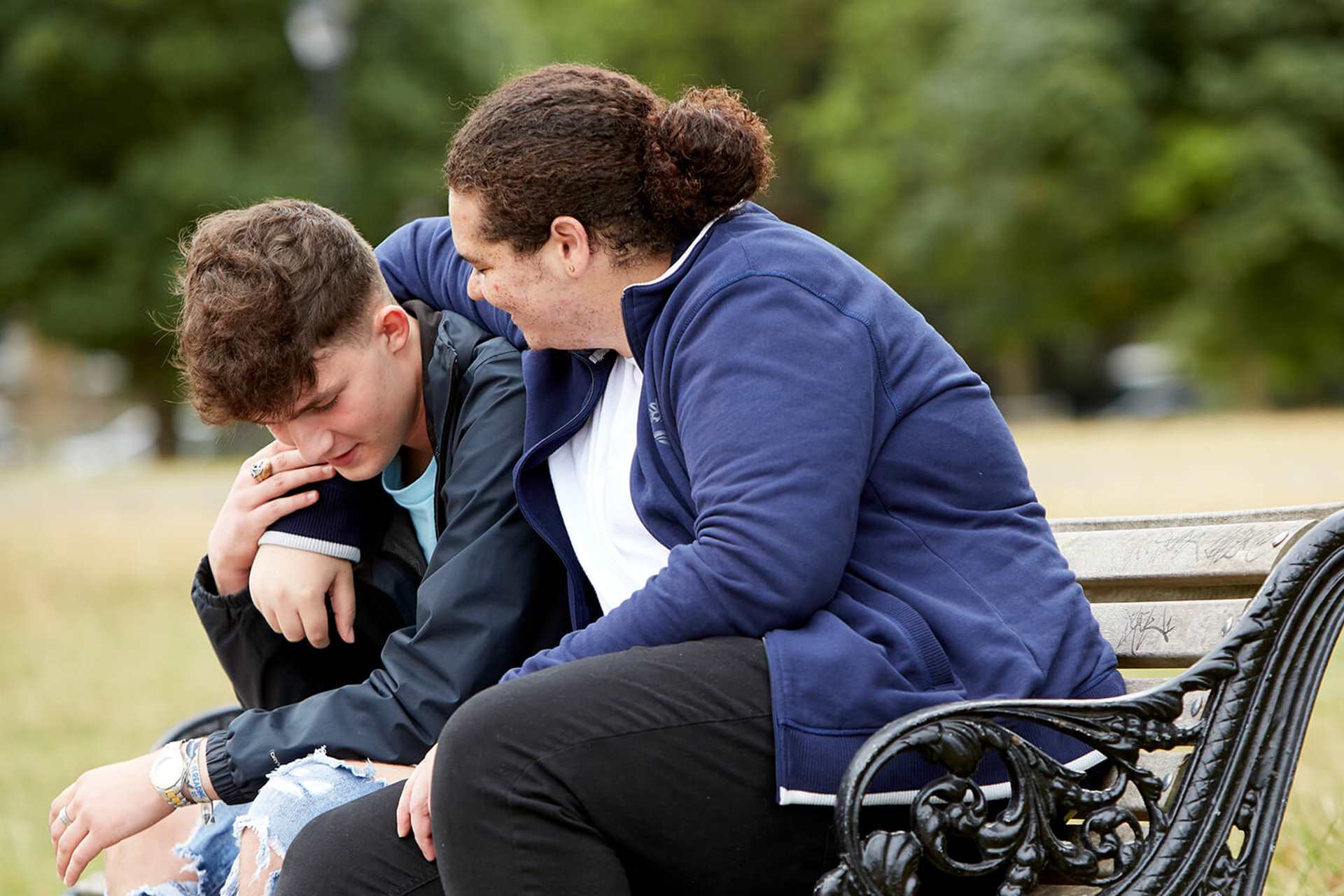Topics mentioned: self-care, coping with life
About: Being positive about mental health is great, but it's also important to acknowledge that sometimes we have difficult thoughts and feelings. Millie shares how you can be positive about mental health in a helpful way.
Having a positive attitude towards mental health is a goal we should all strive for - whether we’re helping others or dealing with something ourselves. However, sometimes the way we preach positivity can have a negative effect. Here are some ways to be helpful, not harmful, when it comes to mental health positivity.
What is 'toxic positivity'?
I would define ‘toxic positivity’ as positivity that has a harmful effect. When we ignore all negative feelings or push them away, they can build up inside us and have a negative effect on our mental health. For example, saying things such as “good vibes only” or “think happy thoughts” ignores the existence of difficult feelings. Phrases such as “cheer up” or “just don’t worry” are also examples of toxic positivity.
Anyone who has struggled with their mental health knows that sometimes it’s really difficult to be happy. Negative emotions are part of being human, sometimes we have to feel them. And that’s okay!
How does 'toxic positivity' affect us?
What effect does forced positivity have on people? To get a real answer to this, I spoke to some of my friends about their experiences:
It’s clear that toxic positivity has a damaging effect - it can make people feel dismissed, lonely and frustrated. When people are already struggling, these are the last feelings they need.
How to practise helpful positivity
Helpful positivity should try and lift people up when they're struggling, without ignoring or denying the struggle. Having a positive outlook when it comes to mental health shouldn't ignore that sometimes our mental health does make us sad or stressed. It’s helpful to acknowledge these feelings so people don’t feel bad for feeling bad.
So, what does helpful positivity sound like? How can you acknowledge the negatives but still be optimistic?
Here are a few examples of helpful positivity when it comes to mental health:
-
“That sounds difficult for you. Is there any way I can help you?”
This is a good way to respond to someone who is struggling. Even if the situation seems like nothing to you, it feels difficult for them. It’s important to try not to make people feel embarrassed or invalid when they open up.
-
"Why does this worry you?”
Questions help people open up. Short statements like 'just don’t worry' are conversation killers. Try and create a discussion, it will help you understand and help the person speak openly.
-
“It’s normal for you to be sad in this situation.”
We often try and push away/distract from negative emotions because they make us uncomfortable. However, being sad, stressed, drained etc. is part of being human. In many situations, it’s a completely normal response. Reassure the person struggling that it’s okay to feel this way. A simple 'don’t be sad!' only reinforces the idea that sadness is something we should avoid at all costs.
-
“Is there something that would make you happy right now?”
This gives the person a choice. You’re not pushing their negative feelings away for them, but offering a distraction or ‘pick-me-up’.
There’s no perfect script to follow when it comes to helpful positivity. The most important things are to really listen, support, and encourage.
How to be honest about positivity
If you feel like people use ‘toxic positivity’ when it comes to your mental health, it’s important to be honest. What is it that you find harmful? What would you prefer to hear? Try writing it down if you can’t think straight away. It can be awkward or difficult addressing this with people, but most of the time people think they’re just being helpful! The people that care about you will want to become more helpful.
Am I using 'toxic positivity'?
If you’ve read this blog and realised sometimes you use ‘positive’ phrases which might not be very helpful for people - that’s okay! It doesn't make you a bad or harmful person. The truth is, we’ve all done it at some point. But try not to dwell on it. The only reason we should focus on what we’ve said in the past is to apologise if we think we’ve upset someone or learn from it and try something different in the future. We can all always improve.
More information and advice
We have tips and advice to help you find the support you need. Take a look at our guides.
Where to get help
However you're feeling, there are people who can help you if you are struggling. Here are some services that can support you.
-
Childline
If you’re under 19 you can confidentially call, chat online or email about any problem big or small.
Sign up for a free Childline locker (real name or email address not needed) to use their free 1-2-1 counsellor chat and email support service.
Can provide a BSL interpreter if you are deaf or hearing-impaired.
Hosts online message boards where you can share your experiences, have fun and get support from other young people in similar situations.
- Opening times:
- 24/7
-
Youth Access
Provides information about local counselling and advice services for young people aged 11-25.
Put in your location and what you need help with into their 'Find help' search, and see what services are available in your area.






